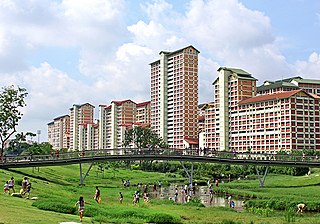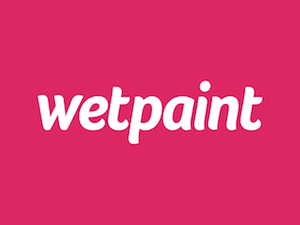Related Research Articles

A pension is a fund into which a sum of money is added during an employee's employment years and from which payments are drawn to support the person's retirement from work in the form of periodic payments. A pension may be a "defined benefit plan", where a fixed sum is paid regularly to a person, or a "defined contribution plan", under which a fixed sum is invested that then becomes available at retirement age. Pensions should not be confused with severance pay; the former is usually paid in regular amounts for life after retirement, while the latter is typically paid as a fixed amount after involuntary termination of employment before retirement.
A pension fund, also known as a superannuation fund in some countries, is any program, fund, or scheme which provides retirement income.

In the United States, Social Security is the commonly used term for the federal Old-Age, Survivors, and Disability Insurance (OASDI) program and is administered by the Social Security Administration (SSA). The original Social Security Act was enacted in 1935, and the current version of the Act, as amended, encompasses several social welfare and social insurance programs.

The Social Security Act of 1935 is a law enacted by the 74th United States Congress and signed into law by US President Franklin D. Roosevelt. The law created the Social Security program as well as insurance against unemployment. The law was part of Roosevelt's New Deal domestic program.

Public housing is a form of housing tenure in which the property is usually owned by a government authority, either central or local. Although the common goal of public housing is to provide affordable housing, the details, terminology, definitions of poverty, and other criteria for allocation vary within different contexts.
Open Society Foundations (OSF), formerly the Open Society Institute, is a grantmaking network founded and chaired by business magnate George Soros. Open Society Foundations financially supports civil society groups around the world, with the stated aim of advancing justice, education, public health and independent media. The group's name was inspired by Karl Popper's 1945 book The Open Society and Its Enemies.
Universal health care is a health care system in which all residents of a particular country or region are assured access to health care. It is generally organized around providing either all residents or only those who cannot afford on their own, with either health services or the means to acquire them, with the end goal of improving health outcomes.

The European Structural and Investment Funds are financial tools governed by a common rulebook, set up to implement the regional policy of the European Union, as well as the structural policy pillars of the Common Agricultural Policy and the Common Fisheries Policy. They aim to reduce regional disparities in income, wealth and opportunities. Europe's poorer regions receive most of the support, but all European regions are eligible for funding under the policy's various funds and programmes. The current framework is set for a period of seven years, from 2021 to 2027.
A social issue is a problem that affects many people within a society. It is a group of common problems in present-day society and ones that many people strive to solve. It is often the consequence of factors extending beyond an individual's control. Social issues are the source of conflicting opinions on the grounds of what is perceived as morally correct or incorrect personal life or interpersonal social life decisions. Social issues are distinguished from economic issues; however, some issues have both social and economic aspects. Some issues do not fall into either category, such as warfare.
An outstation, homeland or homeland community is a very small, often remote, permanent community of Aboriginal Australian people connected by kinship, on land that often, but not always, has social, cultural or economic significance to them, as traditional land. The outstation movement or homeland movement refers to the voluntary relocation of Aboriginal people from towns to these locations.

Wetpaint was an Internet company and a wholly owned subsidiary of Function(X). Founded in 2005, Wetpaint both published the website Wetpaint Entertainment, focused on entertainment news, and developed a proprietary technology platform, the Social Distribution System, that was used to provide analytics for its own website as well as other online publishers. Wetpaint began as a wiki farm, hosting wikis using its own proprietary software, before moving into hosting of professional content in 2010. Wetpaint's wiki-hosting component was spun off completely in 2013 after being purchased by Wikifoundry. Wikifoundry ceased operations in June 2021, decommissioning the original Wetpaint wiki-farm after 15 years

Socially responsible investing (SRI), social investment, sustainable socially conscious, "green" or ethical investing, is any investment strategy which seeks to consider both financial return and social/environmental good to bring about social change regarded as positive by proponents. Socially responsible investments often constitute a small percentage of total funds invested by corporations and are riddled with obstacles.

The National Health Service (NHS) is the conglomerate name for the publicly funded healthcare systems of the United Kingdom, comprising NHS England, NHS Scotland and NHS Wales. Health and Social Care in Northern Ireland was created separately and is often locally referred to as "the NHS". The four systems were established in 1948 as part of major social reforms following the Second World War. The founding principles were that services should be comprehensive, universal and free at the point of delivery—a health service based on clinical need, not ability to pay. Each service provides a comprehensive range of health services, provided without charge for people ordinarily resident in the United Kingdom apart from dental treatment and optical care. In England, NHS patients have to pay prescription charges; some, such as those aged over 60, or those on certain state benefits, are exempt.
Taxation in Italy is levied by the central and regional governments and is collected by the Italian Agency of Revenue. Total tax revenue in 2018 was 42,4% of GDP. Most important earnings are: income tax, social security, corporate tax and value added tax. All of those are collected at national level, but some of those differs across regions. Personal income taxation in Italy is progressive.
India operates a complex pension system. There are however three major pillars to the Indian pension system: the solidarity social assistance called the National Social Assistance Programme (NSAP) for the elderly poor, the civil servants pension and the mandatory defined contribution pension programs run by the Employees' Provident Fund Organisation of India for private sector employees and employees of state owned companies, and several voluntary plans.
This article provides a brief overview of the health care systems of the world, sorted by continent.
GoFundMe is an American for-profit crowdfunding platform that allows people to raise money for events ranging from life events such as celebrations and graduations to challenging circumstances like accidents and illnesses. From 2010 to the beginning of 2020, over $9 billion has been raised on the platform, with contributions from over 120 million donors.
ResearchGate is a European commercial social networking site for scientists and researchers to share papers, ask and answer questions, and find collaborators. According to a 2014 study by Nature and a 2016 article in Times Higher Education, it is the largest academic social network in terms of active users, although other services have more registered users, and a 2015–2016 survey suggests that almost as many academics have Google Scholar profiles.
Discrimination against autistic people is the discrimination, persecution, and oppression that autistic people have been subjected to. Discrimination against autistic people is a form of ableism.
The Prime Minister's Citizen Assistance and Relief in Emergency Situations Fund was created on 27 March 2020, following the COVID-19 pandemic in India. Although it is named for the Prime Minister of India, and uses the State Emblem of India, it is a private fund, used at the discretion of the Prime Minister and the Fund's trustees, and does not form a part of the Government of India's accounts. The Fund was established for the purpose of redressing the Covid-19 pandemic in India, in 2020. While complete documentation for the Fund's establishment has not been made public, the Government of India has stated that the Prime Minister of India, Narendra Modi, is the chairman of the fund, and that trustees include the Minister of Defence, Rajnath Singh; the Minister of Home Affairs, Amit Shah, the Minister of Finance, Nirmala Sitharaman, and several corporate leaders and industrialists, including Ratan Tata, and Sudha Murty.
References
- ↑ "What is replacing the social fund?". 29 April 2013.